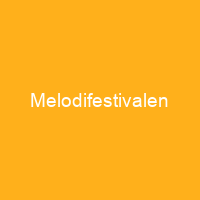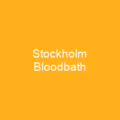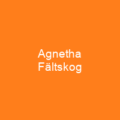Melodifestivalen is an annual song competition in Sweden. It determines the country’s representative for the Eurovision Song Contest. Since 2000, the competition has been the most popular television programme. The festival has produced six Eurovision winners and twenty-four top-five placings for Sweden at the contest.
About Melodifestivalen in brief

In the event’s early years, it was broadcast to Norway and Denmark through the Nordvision network. In 1967 the competition adopted its current name, Melod ifestivalen, in 1967. It is also broadcast on radio and the Internet, and a children’s version of the competition, Lilla MelodIfestivalen began that year, also began that same year. The first contest was the third, in 1958. Sweden’s first song selected was Alice Babs, which finished fourth at Eurovision in Hilversum, Netherlands. In 1970, Sweden was absent from Eurovision for a second time in 1970 because of a Nordic boycott of the voting system, which had led to a four-way tie for first place at the 1969 contest. After the 1975 contest in Stockholm, left-wing groups argued that Sweden should not spend money to win and host Eurovision again. This led to mass demonstrations against commercial music and the organisation of an anti-commercial Alternativfestivalen. In 1977, Sweden decided not to send asong to Euro Contest 1976 but returned in 1977. The event has attracted substantial tourism to the city of Stockholm since the introduction of a grand final in Stockholm in 2000. It was first broadcast in 1959, when Sveriges Radio decided that the winning song—regardless of its original performer—would be performed by Brita Borg. In 1960, the contest was incorporated into the Säg det med musik radio series; eight songs participated.
You want to know more about Melodifestivalen?
This page is based on the article Melodifestivalen published in Wikipedia (as of Dec. 05, 2020) and was automatically summarized using artificial intelligence.







